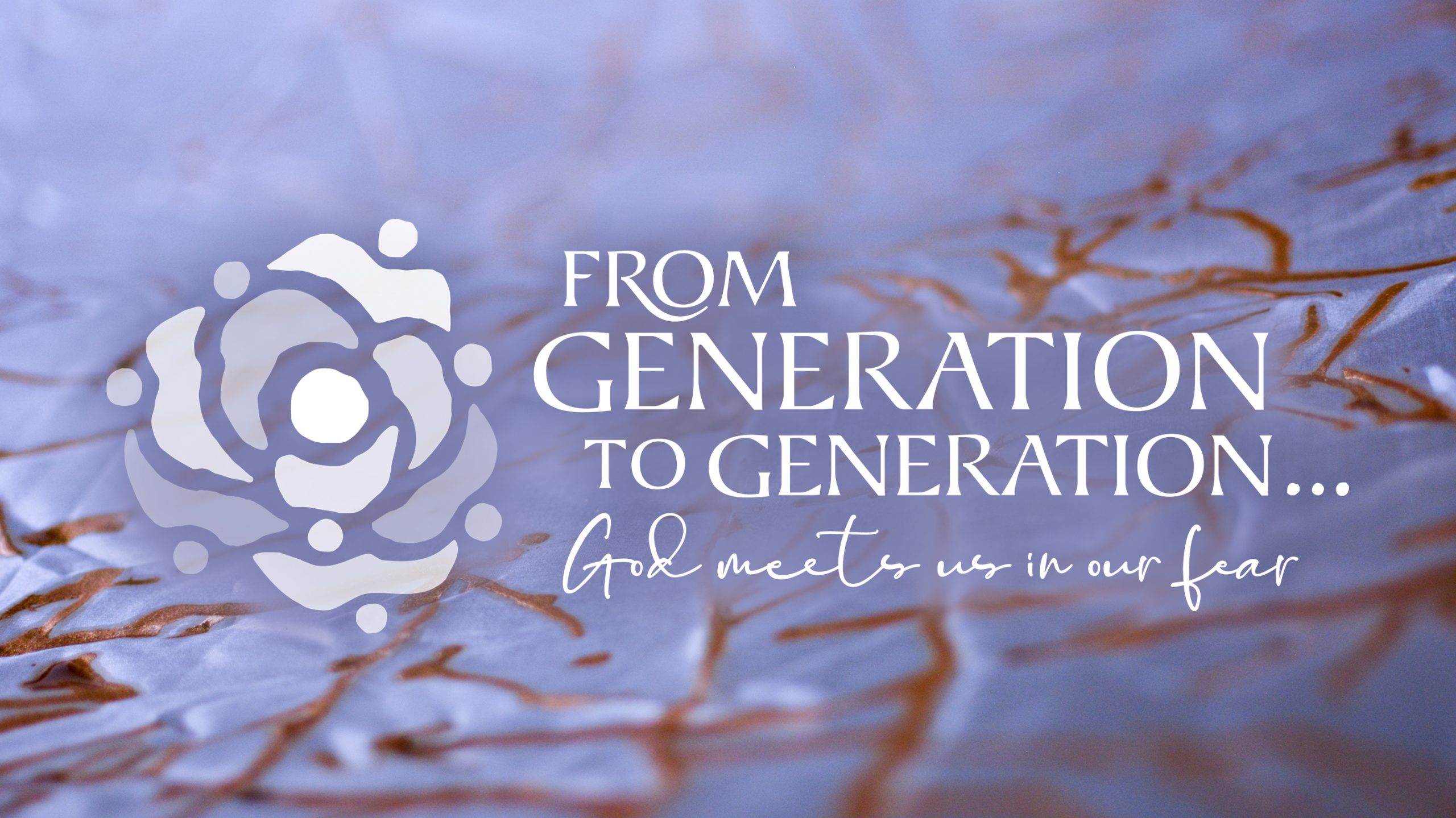God Meets Us in Our Fear

Love Comes Running
Poem by Rev. Sarah (Are) Speed
I remember
the first time I was afraid.
I was a child.
It was a nightmare.
(You remember those pesky
monsters under the bed.)
I remember
minutes felt like hours.
I begged
the sun to rise.
(Fear always begs
the sun to rise.)
Eventually,
after minutes that felt like hours,
I cried out.
My dad came running.
He sat at the edge of my bed.
He said there is no reason
to be afraid.
He checked the closet and
the floorboards.
He rearranged my pillows. He said, “I can stay.”
And that’s when I learned
that when you are afraid,
love always comes running.
Love says, “I can stay.”
That’s what God does for us.
God sits at the edge of the bed.
God checks the closet and the floorboards.
God says, “Be not afraid.”
God stays until sunrise.
Love always comes
running.
Read Luke 1:26-38
Reflection by Dr. Christine J. Hong
The story of the annunciation has always held dissonance for me. After all, the angel’s exclamation that Mary should not be afraid is terribly unrealistic. How could Mary not have felt fear when confronted with a celestial being? How could she avoid feeling afraid after hearing the angel’s message about her pregnancy? Later, Mary’s son, Jesus, also felt fear at Gethsemane when faced with betrayal and capital punishment. As she watched him suffer and die, the fear and anguish she must have felt!
As a young child, I remember whenever my brother or I were very ill I would hear my mother praying in Korean, “Jeh-gah dae-shin” (“Take me instead”). My mother bargained with God to ease her children’s pain. In my time as a chaplain and pastor to parents with sick children, sometimes with life-threatening illnesses, I have heard many parents whisper the same prayer, “Take me instead.”
What if the dissonance is what we are meant to sit with? Every day, people are faced with untold grief and pain, and the gospel, or the good news, is not enough to take that pain and fear away. Hope sounds hollow to those who are enduring the wretched parts of life. Rather than gloss over the dissonance, can we sit with Mary? Yes, the Magnificat, her song of courage, is a mark of her bravery. Still, we know—because we too are human—that courage rises despite our fear, not in its absence. Those who have suffered loss know this.
Perhaps this story and the dissonance of the angel’s command are an invitation to sit with those who are experiencing the dissonance of a world moving on despite their personal struggle—a world that says, “Cheer up! Move on!” while they are still grieving. Perhaps the dissonance invites us to accompany people moving through their pain,as Mary and Jesus accompanied one another through life events only the two of them understood. Despite the dissonance, they moved through the liminal and tender space of their lives together. In other words, God moved through the liminal and tender spaces of God’s human life with Mary,even as they were both afraid.
Recommended Posts

Pink Tape
August 20, 2024

Finding Joy Each Day
July 15, 2024

Wildflowers in Colorado
July 8, 2024
